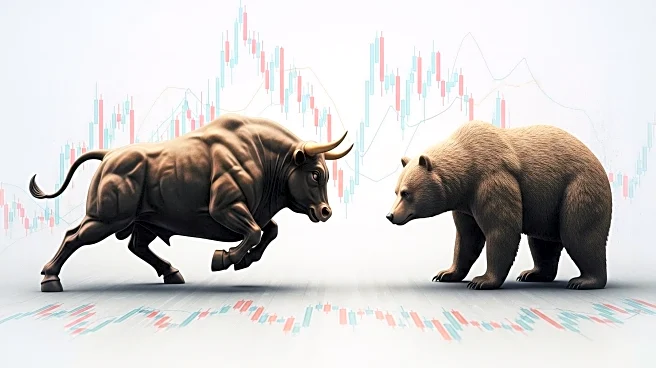What's Happening?
Active funds have faced significant challenges in outperforming index funds over the past year, according to a Morningstar report. Despite market volatility from tariffs and geopolitical events, only 33% of actively managed mutual funds and ETFs achieved higher returns than index funds from July 2024 to June 2025. This marks a decline from the previous year. Active managers typically claim to excel during volatile periods, but data shows otherwise. Over the long term, only 21% of active strategies have outperformed index funds over the past decade.
Why It's Important?
The struggle of active funds to outperform index funds highlights the challenges faced by active managers in volatile markets. This trend impacts investors who rely on active management for potentially higher returns. The findings suggest that index funds, which track the market, may offer more consistent performance, especially in sectors like U.S. large-cap stocks. Active managers may fare better in less liquid markets, such as fixed income and emerging-market stocks, but overall success rates remain low.
What's Next?
The ongoing debate between active and passive management strategies will likely continue, with investors weighing the benefits of each approach. Active managers may need to refine their strategies to better navigate market complexities and improve performance. The focus on fees and cost-effectiveness will remain crucial, as high fees can erode returns. Investors may increasingly turn to index funds for their lower costs and reliable performance.
Beyond the Headlines
The performance of active funds varies by sector, with some areas like high-yield bonds showing better results. The data challenges the conventional wisdom that active managers can outperform during volatile periods, prompting a reevaluation of investment strategies. The findings underscore the importance of considering fees and long-term performance when choosing between active and passive funds.










